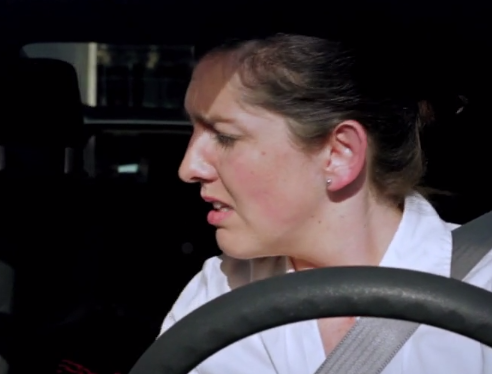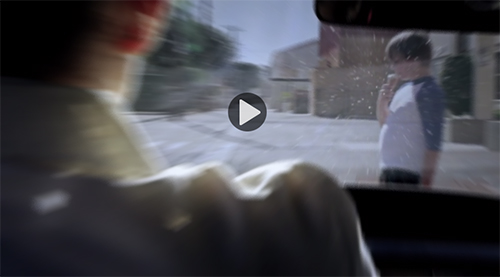Attorneys* are lining up for million dollar settlements as in-car application engineers race to work out the bugs in speech recognition systems in cars which lead to distracted driver lawsuits.
It Doesn’t Take Much Distraction to Cause a Fatal Accident
A car going 35 miles per hour travels 51 feet in one second as exemplified in this dramatic video, ‘Just a Second’.
Keeping the driver’s hands on the wheel and eyes on the road reduces accidents. If a computer can’t understand you (a “comprehension disconnect”), it aggravates the driver and creates an even more dangerous environment.
These “comprehension disconnects” happening between the driver and the computer is
the second most aggravating occurence according to David Strayer, Ph.D., professor of cognition and neural sciences at the University of Utah. In his study
‘Measuring Cognitive Distraction in the Automobile’ which was reported in the July/August 2013 issue of Westways magazine, Dr. Strayer ranks driver distractions on a one to five scale (full article
here).
1.00 Single Task Condition
1.21 Listening to the Radio
1.75 Listening to an Audiobook
2.27 Conversing on a hands-free Mobile Phone
2.45 Conversing on a handheld Mobile Phone
3.01 Interacting with a Speech-to-Text Device
5.00 OSPAN task (students’ “max out” point)
Speechtek magazine quotes Mike VanNieuwkuyk, executive director of Global Automotive Research, J.D. Power, outlining the source of the consumer’s frustartions,
“As a consumer” he explains, “‘I may have to remember a set of commands and so I’m limited to those commands, but I’m also frustrated that I have to follow a different pattern of speech, things I’ve had to learn. People don’t want to do that. They want to speak naturally in their own way and have the software recognize them and then execute the commands based on what is it told to do. The consumers feel that the offerings today don’t do that; they don’t work. Consumers are clamoring for that technology to hit that level of achievement and it’s not there yet.”
To help computers understand “ordinary” humans better, The Association just finished a project recording over 22,000+ voice files of normal people from eight countries speaking 330 lines each. They were to use their “normal” speech, so we hired no professionals. But we did require they were no more than two generations from their native country. Luckily, we are headquartered in Hollywood, which has attracted a vast pool of foreign nationalities, so finding an ample supply of qualified voice speakers was not difficult.
So, now we’re helping both sides of the in-car conversation.
For over fourteen years we’ve been supplying professional voice over artists to be
pleasant voices for the computers in the car.
Now we’re helping our clients train the computers to be better listeners. We’re all for a safer road.
Our forward-looking client, whom we can’t mention at this time, is staying ahead of the anticipated NHTSA (National Highway Traffic Safety Administration) Phase III guidelines, which will most likely address voice-activated controls to further minimize distractions. When Phase III rolls out, they want their computers “smart” enough to pass their comprehension guidelines.
*A
‘Driver Distraction Accidents‘ report by Attorney Eric Hageman of PritzgerOlsen outlines the NHTSA’ Phase I and II guidelines and predicts the content of Phase III guidelines.
_____________________
The Association has been providing voice files for in-vehicle navigation systems the longest of any vendor, beginning with the Clarion/Microsoft Auto PC project in 1999, The Association has the most successful production workflow which has provided over 64,000 error-free voice files to Alpine, Johnson Controls, IBM, deCarta, Boeing, Raytheon and others. In June, we completed a 22,400 voice file project recording “ordinary people” reading lines in eight languages to train computers to improve voice recognition scores.
Please call us at 818 841-9660 or 818 606-3538 to discuss how we can provide solutions for your voice file projects.
- See more at: http://blog.theassociation.tv/blog/the-association/page/2#sthash.mP5wCmNy.dpuf


